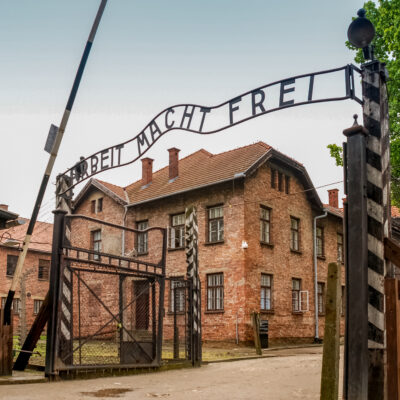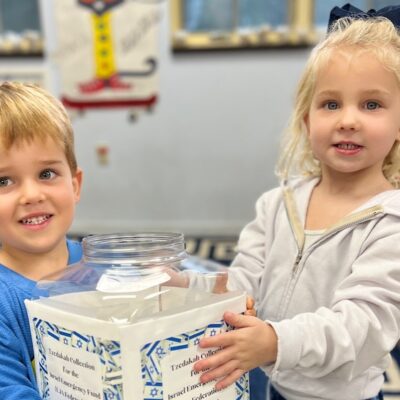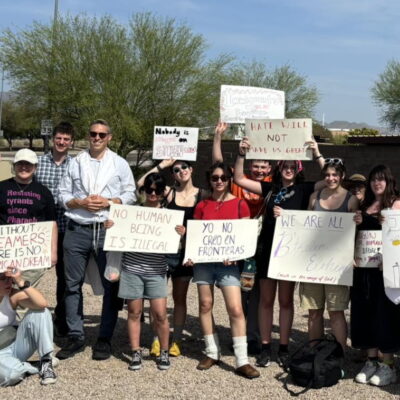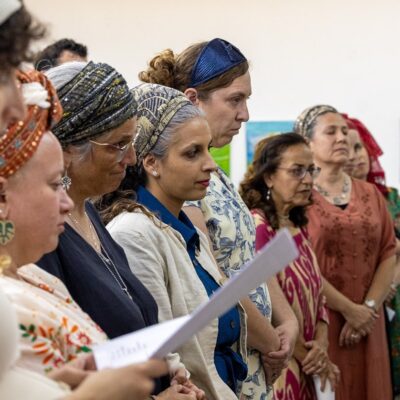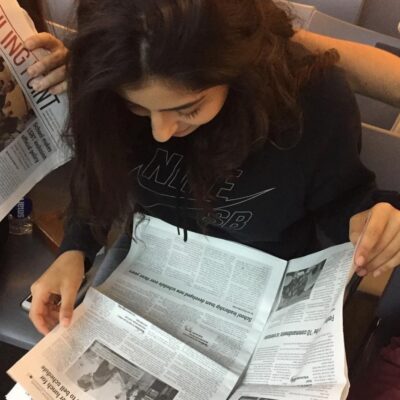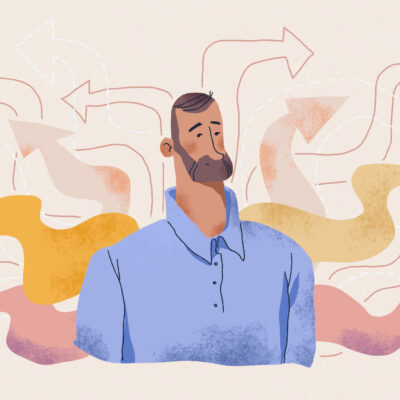Opinion
Creating connections
Progressive Judaism, connections, and acts of healing
In Short
What is changing is the face of our movement
Thirteen years before she helped found the World Union of Progressive Judaism (WUPJ) in 1926, the amazing Jewish teacher and preacher Lily Montagu spoke about Jewish peoplehood to a youth club in central London. She challenged her audience: “We must ask ourselves for what we as Jews stand – and when we know, we must be sure that our mission is worthwhile.”
Lily Montagu was not a Zionist, but understood the responsibility that she, in London, had to Jewish communities around the world – each with their own unique realities and challenges. At 38, not much older than I am now, she had already started a path towards creating a liberal Judaism open to many voices and new leadership for changing times.

Shutterstock
The landscape and the challenges around us are incredibly different than the ones Lily Montagu faced nearly 100 years ago when forming the World Union for Progressive Judaism (WUPJ). The pace of change is quicker. The world seems smaller. Old definitions overnight become obsolete.
But what she faced then – questioning and examining what we stand for, and determining if that Jewish mission is worth the challenges and recriminations – is still relevant, if not urgent.
The 39th international gathering of the Progressive movement she helped found is this week, and the mission before us today is to support an increasingly diverse Jewish community as it faces seemingly insurmountable pressures and an imperative to act. Whether we’re talking about existential threats to Israel and all of its citizens – as we are witnessing with alarm through the present war – or the growing climate emergency, or the constant threat to our community from antisemitism, our worldwide Progressive movement is facing these challenges with a unique outlook steeped in Jewish learning.
What is constant is our commitment to respond to changing times and find visionary approaches to repair the world. What is changing is the face of our movement.
This is becoming increasingly true across our landscape. In a recent conversation, Dr. Elsie Stern of Reconstructing Judaism painted the traditional picture of a teacher at rabbinical school helping craft the unique voices of students through interaction with sacred text. But those teaching these core classes increasingly are teachers representing the diversity in our movement. In other words, the texts may be the same – but the teachers are changing. Responding, Rabbi Lisa Grant of Hebrew Union College – Jewish Institute of Religion then accentuated that the teachers are as much the texts as the sources the students approach.
This is true at the top: Rabbi Sergio Bergman, who is being installed this week as WUPJ’s new president, has obtained great stature by being the only Reform rabbi in living memory to serve as a government minister. But for many years he has not been centered on the global stage because of his choice to serve Jewish community on the margins. This experience has infused him with exposures and perspective that could only have been attained there, and which he carries with him to Jerusalem.
This is true throughout the whole ecosystem of Progressive Judaism: conversations advanced by our leaders in their 20s and 30s are being heard, and we are embracing and elevating the voices of those of diverse gender, sexual orientation, race and more.
The conversations unfolding this week at Connections, WUPJ’s 2021 convening, pose a snapshot of Progressive Judaism’s wide reach and singular lens.
In the conversations on institutional antisemitism and hate, are we missing out on stories of nurturing hope? In discussions about sectarian strife in Israel, are we forgetting the stories of those working for a shared society? And in conversations around big political questions, are we forgetting the role of congregational teachers in providing context to news?
My connection to these ‘big questions’ of the Jewish people comes from my personal friendships with the individuals who dedicate their lives to change and renewal in Jewish life. Sometimes it is my role at Holy Blossom Temple that opens the doors to these insights. But more often than not, it is because I have been attending WUPJ conferences and have – through exposure to the many voices coming together – been gifted with connections beyond what could be gained in my comfortable Toronto silo.
For the nearly hundred years of its existence, the WUPJ has brought forth diverse voices from India and Europe, from the US and Australia, and beyond. The global movement has constantly taken tradition and helped shape it into livable Judaism around the world.
This moment is no different, and as we stand at this hard time in Jewish history, we will learn from our new WUPJ President, Rabbi Sergio Bergman, that the fix can only come through connections.
Creating connections, and elevating a diversity of voices, are themselves acts of healing in today’s challenged world.
Rabbi Jordan Helfman is a co-chair of the World Union of Progressive Judaism’s May 2021 Connections: Facing our Jewish Future Together conference. He is a member of the WUPJ Executive Board, and is Associate Rabbi at Holy Blossom Temple in Toronto, Canada. He is one of the many young leaders helping shape the direction of the WUPJ.

